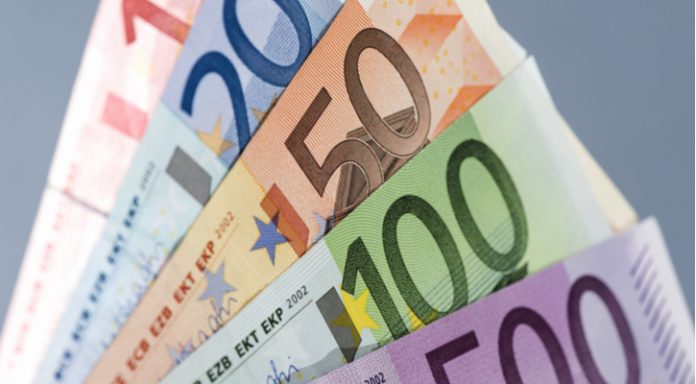The Bank of England gave the pound a boost on Thursday, after the details on the monetary policy meeting were released. The pound jumped to a peak of €1.1459 versus the euro, its highest level in three sessions.
| What do these figures mean? |
|---|
| When measuring the value of a pair of currencies, one set equals 1 unit and the other shows the current equivalent. As the market moves, the amount will vary from minute to minute. For example, it could be written: 1 GBP = 1.13990 EUR Here, £1 is equivalent to approximately €1.14. This specifically measures the pound’s worth against the euro. If the euro amount increases in this pairing, it’s positive for the pound. Or, if you were looking at it the other way around: 1 EUR = 0.87271 GBP In this example, €1 is equivalent to approximately £0.87. This measures the euro’s worth versus the British pound. If the sterling number gets larger, it’s good news for the euro. |
The BoE, as expected voted to keep the UK interest rate level steady at 0.5%. However, there was an unexpected shift in the vote split. The split turned slightly more hawkish as it changed to 6 -3 as opposed to 7-2 in May. This meant that a third member voted in favour of hiking rates, rather than just the 2 expected. The known doves Michael Saunders and Ian McCafferty voted in favour of a hike and were joined by Chief Economist Andy Haldane.
In addition to another member voting for a rate hike, the minutes also showed that the central bank was keen to hike rates if the data over the coming weeks allowed. Furthermore, the central bank also suggested that it was looking to sell off its government bonds earlier than it had originally planned. As a result, the overall tone of the meeting was more hawkish and therefore more supportive of a rate rise than what market participants had been expecting, which boosted the pound.
| Why do raised interest rates boost a currency’s value? |
|---|
| Interest rates are key to understanding exchange rate movements. Those who have large sums of money to invest want the highest return on their investments. Higher interest rate environments tend to offer higher yields. So, if the interest rate or at least the interest rate expectation of a country is relatively higher compared to another, then it attracts more foreign capital investment. Large corporations and investors need local currency to invest. More local currency used then boosts the demand of that currency, pushing the value higher. |
Eurozone Pmi’s To Confirm Slowdown?
Demand for the euro was limited in the previous session. With little in the way of economic data to drive the euro, investors continued to digest the dovish remarks by European Central Bank President Mario Draghi, earlier in the week. Draghi spooked the market on Tuesday by confirming the message from the ECB policy meeting that the central bank will not be looking at raising rates until after the summer next year.
Attention today will return to economic data, with figures coming in from the eurozone and German purchasing managers index. Analysts are expecting the data across the board, expect service sector numbers from Germany, to print marginally lower. This would continue to support the notion that economic growth is slowing in the bloc which could unnerve euro traders and send the common currency lower.
| Why does poor economic data drag on a country’s currency? |
|---|
| Slowing economic indicators point to a slowing economy. Weak economies have weaker currencies because institutions look to reduce investments in countries where growth prospects are low and then transfer money to countries with higher growth prospects. These institutions sell out of their investment and the local currency, thus increasing supply of the currency and pushing down the money’s worth. So, when a country or region has poor economic news, the value of the currency tends to fall. |
|
This article was initially published on TransferWise.com from the same author. The content at Currency Live is the sole opinion of the authors and in no way reflects the views of TransferWise Inc. |





